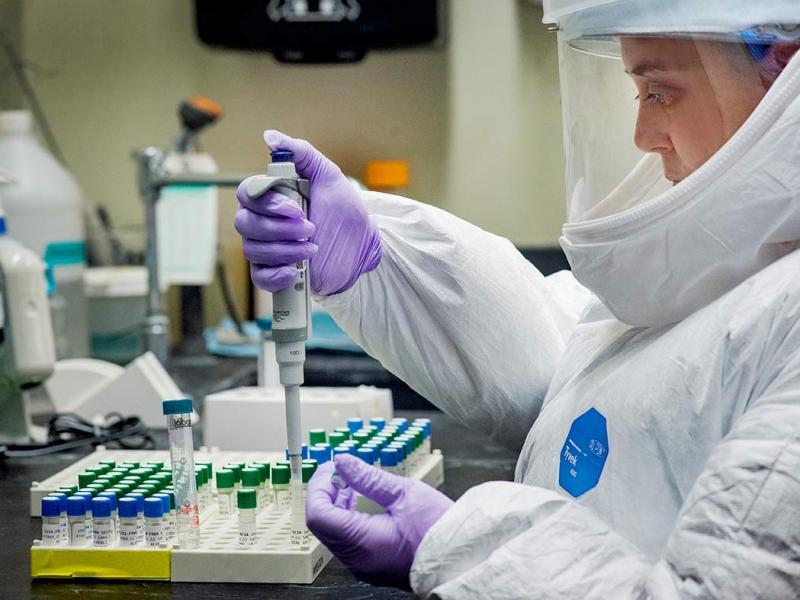Tulane University to lead national research partnership to speed up COVID-19 vaccines and drug discoveries
The National Institutes of Health has selected Tulane National Primate Research Center to lead a new partnership between the seven federally funded National Primate Research Centers to combine their efforts to accelerate promising COVID-19 vaccine and drug research.
The NIH contract, awarded at $1.7 million for the first year, has the potential to reach up to $6.5 million over a four-year funding period.
Tulane will play a leading role in coordinating the evaluation of promising COVID-19 vaccines and therapeutics for COVTEN (Coronavirus Vaccine and Therapeutic Evaluation Network). The partnership will standardize research protocols and methods of data collection, share preliminary data and best practices across centers, and minimize the use of nonhuman primates by having single control groups across multiple studies. The centers, which normally conduct research independently, aim to harmonize their studies to provide more useful comparative data.
As the coordinating center, Tulane National Primate Research Center will develop and refine standard operating procedures, coordinate studies, and establish a central data center to share preliminary and final results. This will optimize studies so that scientists can get answers to their research questions with fewer animals and more rigorous controls.
“By establishing this structure, we will maximize work being done across the NPRCs so that we can find answers to critical research questions with fewer animals and more rigorous controls,” said Jay Rappaport, principal investigator and director of the Tulane National Primate Research Center. “This will help us be more efficient in responding to emerging infectious diseases now and in the future. It’s an honor for Tulane to play a leading role in this by serving as the coordinating center.”
Vaccines and therapeutics are normally evaluated in both human and nonhuman primate populations using a less coordinated approach that makes it difficult to compare one treatment with another. Rappaport says that harmonizing research efforts across the NPRCs in this way is a significant shift in the way that research institutions have historically worked together. He credits colleague Nancy Haigwood, director of the Oregon National Primate Research Center, for her early support of the idea.
“The coordinating center at Tulane is critical to the success of the shared COVID-19 research amongst the National Primate Research Centers. With the establishment of the coordinating center, our combined and individual efforts to share protocols and results will be maximized. I am really pleased that the project is moving forward with support from the NIH,” Haigwood said.
Angela Birnbaum, director of biosafety for Tulane University and director of biocontainment at the Tulane National Primate Research Center, is the co-principal investigator on the contract.
The establishment of the COVTEN coordinating center at the Tulane National Primate Research is a unique collaboration with the seven National Primate Research Centers, the Tulane Office of Information Technology and the Tulane Office of Biosafety.


